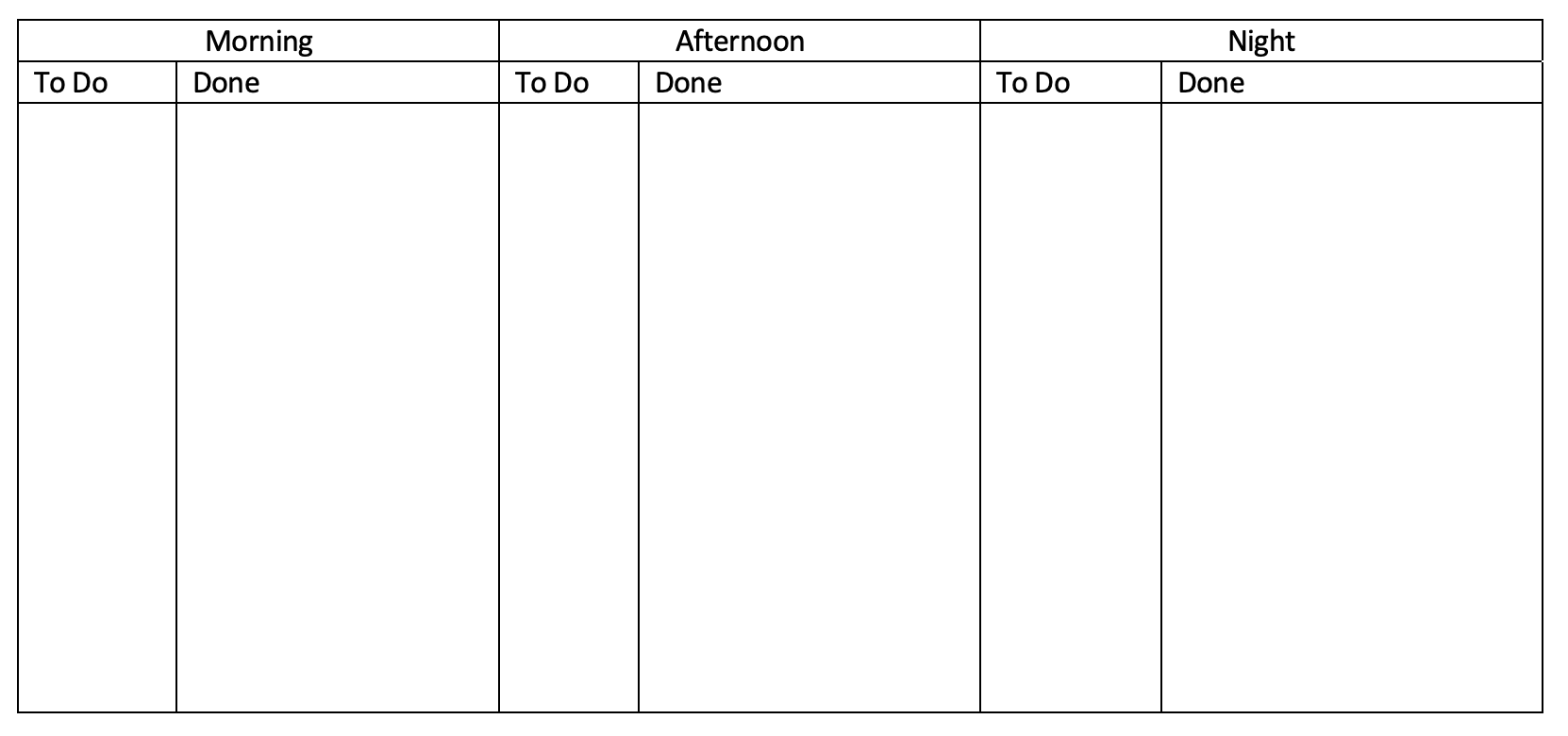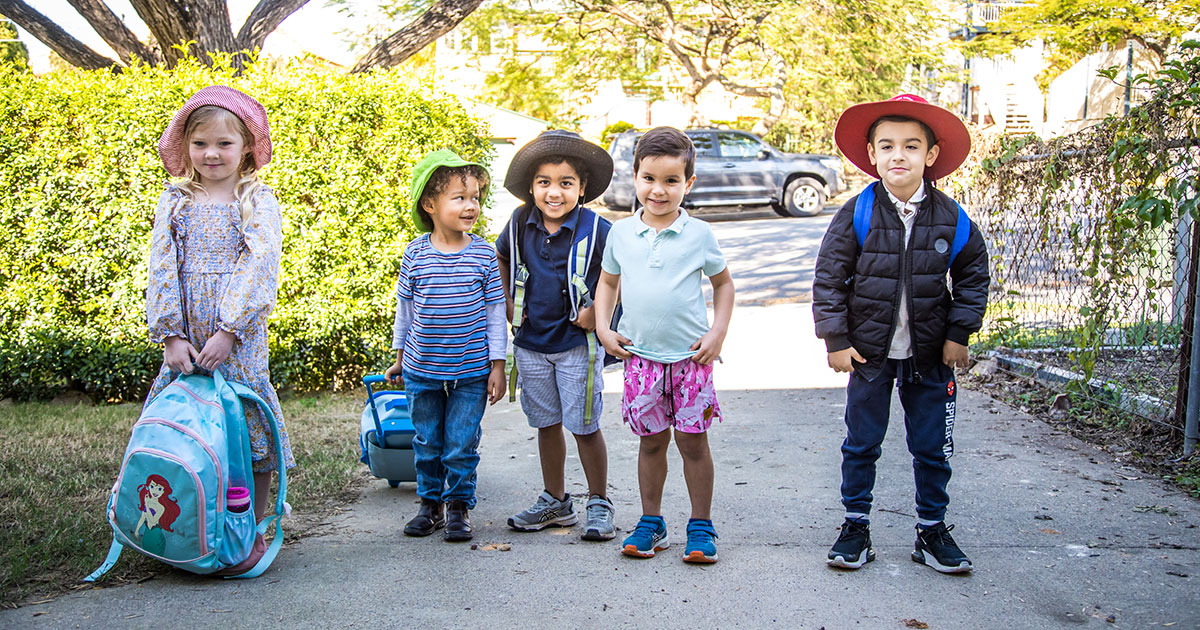Top 10 Essential Learning Skills for Prep Readiness
25 November 2021
Starting school is a big moment in a child’s life. Success in school is partly based on the readiness of the child – ensuring they can keep up with the work, ensuring they have the right mindset, and setting them up with the foundational skills they need.
These are my top 10 essential learning skills for Prep readiness. I hope you have fun with the activities below with your child or, in fact, with the whole family.
If you think your child needs more help preparing for Prep, why not read more about our Prep4Prep programs? We have both an in-term program and a holiday program.
1. Language Development
“The child begins to perceive the world not only through his eyes but also through language.” – Lev Vygotsky
Language is the foundation for all learning in Prep. Language provides every child with the means to express themselves fully through a rich vocabulary. Children in Prep learn a wide range of vocabulary.
They use this vocabulary when they describe and express their everyday needs and wants. It also provides them with a language that helps them to explain what they are learning within the curriculum. Comprehension helps children to comprehend and understand their world
Here are some great activities and learning experiences to increase their Prep Readiness:
See, Show, Say (reading)

Meaningful, interesting conversation
Purchase these conversation starter kits to make chatting fun.

Play Games that encourage Language Development
- Guess Who?
- Hedbanz


2. Emotional Learning
“Emotional intelligence begins to develop in the earliest years. All the small exchanges children have with their parents, teachers, and with each other carry emotional messages.” – Daniel Goleman
Understanding and using emotions is essential in Prep. Children are still in the experimental phase of developing and understanding their emotions. We are born with a limited range of emotions representing happiness, sadness, and anger.
Emotions are developed through having a wide range of experiences. A key to remember is to check in with the child as to what they are experiencing.
Here are some great activities and learning experiences to increase their Prep Readiness:
Reading Books around Feelings
- The Way I Feel by Janan Cain
- It’s Ok to Feel the Way You DO otherwise you wouldn’t be you! by Josh Langley
- Rainbow Fish by Marcus Pfister
- Giraffes Can’t Dance by Giles Andreae and Guy Parker-Rees
- Pete the Cat: I love My White Shoes by Eric Litwin
- The Dot by Peter H Reynolds






3. Social Learning
“Children are naturally social and are happier when connected with others” – Paul Bloom
Every child is a social child, and they all socialise differently. Social language is the key to effective communication. Communication is the ability to use words in different socialising situations. Children learn a range of social conventions in their Prep year, for example, greetings and social language for entering social situations.
Here are some great activities and learning experiences to increase their Prep Readiness:
Playing Age-Appropriate Board Games with Peers/Adults




Create Social Stories




4. Visual Discrimination
“Teach it once…teach it right…teach it forever!” – Lasni Motswage
Visual discrimination is a foundational skill for reading and writing readiness. This involves being able to see subtle differences in objects, including letters and numbers, to distinguish them from others.
Reading and writing are only developed once a child has developed visual discrimination skills, for example children need to change directions in the different letter formations when writing their name.
Here are some great activities and learning experiences to increase their Prep Readiness:
Fine Tune Visual Discrimination Skills by looking for Wally

Test your child’s eyes
Play Puzzles
5. Gross and Fine Motor Skills
“Gross and fine motor skills are the foundation of all learning.” – Lynne Kendall
Body awareness is crucial for developing children’s gross motor and fine motor. These are the skills that heavily impact on children’s coordination and writing development. Gross motor skills develop before fine motor skills. It is essential that children are exposed to a wide variety of gross and fine motor activities.
Here are some great activities and learning experiences to increase their Prep Readiness:
Drawing, cutting, tracing and gluing
Practise climbing, running, climbing and skipping
Name Writing
6. Auditory Discrimination

“The ability to listen, hear fine sounds and communicate can no longer be seen as optional” – Lynne Kendall
Children need to be exposed to many different noise levels in the early years of learning. This helps to develop sound knowledge, a prerequisite for reading. Children who are able to discriminate between high, medium and low sounds will have enhanced Prep readiness.
The foundations of reading are based on letter/sound knowledge, phonological and phonemic awareness and phonics.
Here are some great activities and learning experiences to increase their Prep Readiness:
Make music with a wide variety of instruments and see if the children can identify the pitch/volume of the sound
Use Online Resources to Support Auditory Discrimination
- Guess The Sound
- Is it high or Low?
- The Music Show Episode #4: We’re Gonna Sing High, Low, and in the Middle
- High and Low Pitch for Grade 1
7. Memory
“Memory is the diary that we all carry about with us” – Oscar Wilde
Memory is fundamental to all aspects of learning. Memory is how the brain stores and remembers information. In Prep, children are continuously retrieving facts, events, and experiences to recall or recognise previously learned information.
Your child is either a short-term memory thinker or a long-term memory thinker. This is inherent from birth and does not change throughout our lifetime. What we can do is understand how our brain uses memory and learn strategies to help us with learning.
Here are some great activities and learning experiences to increase their Prep Readiness:
Play memory games
Play Simon Says

Verbal Memory Game – I went shopping
Parent starts the game saying “I went shopping and bough (item e.g. eggs) and (item e.g. milk). Child repeats “you went shopping and bought eggs and milk”. In each round, the parent adds an item, and the child is required to remember it.
8. School Life
“Children are creatures of habit and very much depend on a routine to feel secure and function well” – Bonnie Slade
School life is different to kindergarten. Some of the routines remain the same: sitting on the carpet, reading a book, going out to lunch, and doing activities. What changes when you go to school is that the routines are more frequent and often in timed slots. Children need to finish their learning on cue, ready to start the next routine.
Routines provide children with a sense of security and enable children to develop a sense of mastery. The skill to be learnt is to follow a routine but also accept that the routine might change, requiring flexibility.
Here are some great activities and learning experiences to increase their Prep Readiness:
Create a Visual Schedule





9. Parent Readiness
“It is not what you do for your children, but what you have taught them to do for themselves that will make them successful human beings” – Ann Landers
As a parent, there is so much to organise before sending your child off to Prep. As parents, we all want our children to be confident, resilient, academically prepared, and socially and emotionally ready. The parent’s role is to continue the amazing work the kindergartens do to provide a stable bridge to school.
Here are some great activities and learning experiences to increase their Prep Readiness:
Create independence by having your child pack their bags with this tag

Create Play Stations to have the opportunity to sit back and observe your child

Make connections
- Schedule regular play dates with other children who will be attending the same school
- Ensure orientations
- Where possible, purchase the school uniform early and roleplay going to school and learning
- Play school with your child
- Create a social story around going to school, meeting your teacher and so on
- Join your school’s Facebook group and/or parent Facebook group
10. Build a Growth Mindset
“A good bunny never gives up” – Peter Rabbit
The best ever start to Prep is when your child has a Growth Mindset. They believe that they can achieve anything that they want to achieve. They don’t see the hardness, but they see the learning. When children naturally see themselves working hard, putting in effort, receiving feedback, and persisting, this will set them up to be learners for life.
Here are some great activities and learning experiences to increase their Prep Readiness:
Reading Books Around Growth Mindset
- Your Fantastic Elastic Brain – Stretch It, Shape It by JoAnn Deak
- Stuck by Oliver Jeffers
- The Girl Who Never Made Mistakes by Mark Pett and Gary Rubinstein
- Rosie Revere, Engineer by Andrea Beaty
- The Little Engine that Could by Watty Peper
- The Magical Yet by Angela DiTerlizzi and Lorena Alvarez





Display Growth Mindset Cards on your fridge

“Behind every young child who believes in himself is a parent who believed first.” – Matthew Jacobsen
Confidence is everything, and by using these ten learning skills, you are gifting your child with school readiness for Prep. I wish you well in preparing the prep!
If you want more professional support and advice for getting your child school-ready, have a look at our Prep4Prep School Readiness Programs. We offer both in-term and school holiday programs.
Yours in Learning
Lasni
Download our free guide
Supercharging Struggling Learners
Key signs your child might be struggling with their learning:
- frustration
- lack of focus
- low energy or a lack of effort
- negative body language
Learning is challenging and hard. It is important for you and your child to recognise that as part of the learning process, accept it and push through it. This free guide will help you navigate these challenges and supercharge your struggling learner.
Don’t wait any longer. Download it today.
Tutoring and tutors for primary school children in English and Maths.
Fairfield
Christian Family Teaching Rooms
51 Cross Street, Fairfield Q 4103
Access the teaching rooms at the rear of the carpark off Sunbeam Street
Carina
The Salvation Army Teaching Space
202 Gallipoli Road Q Carina Heights
